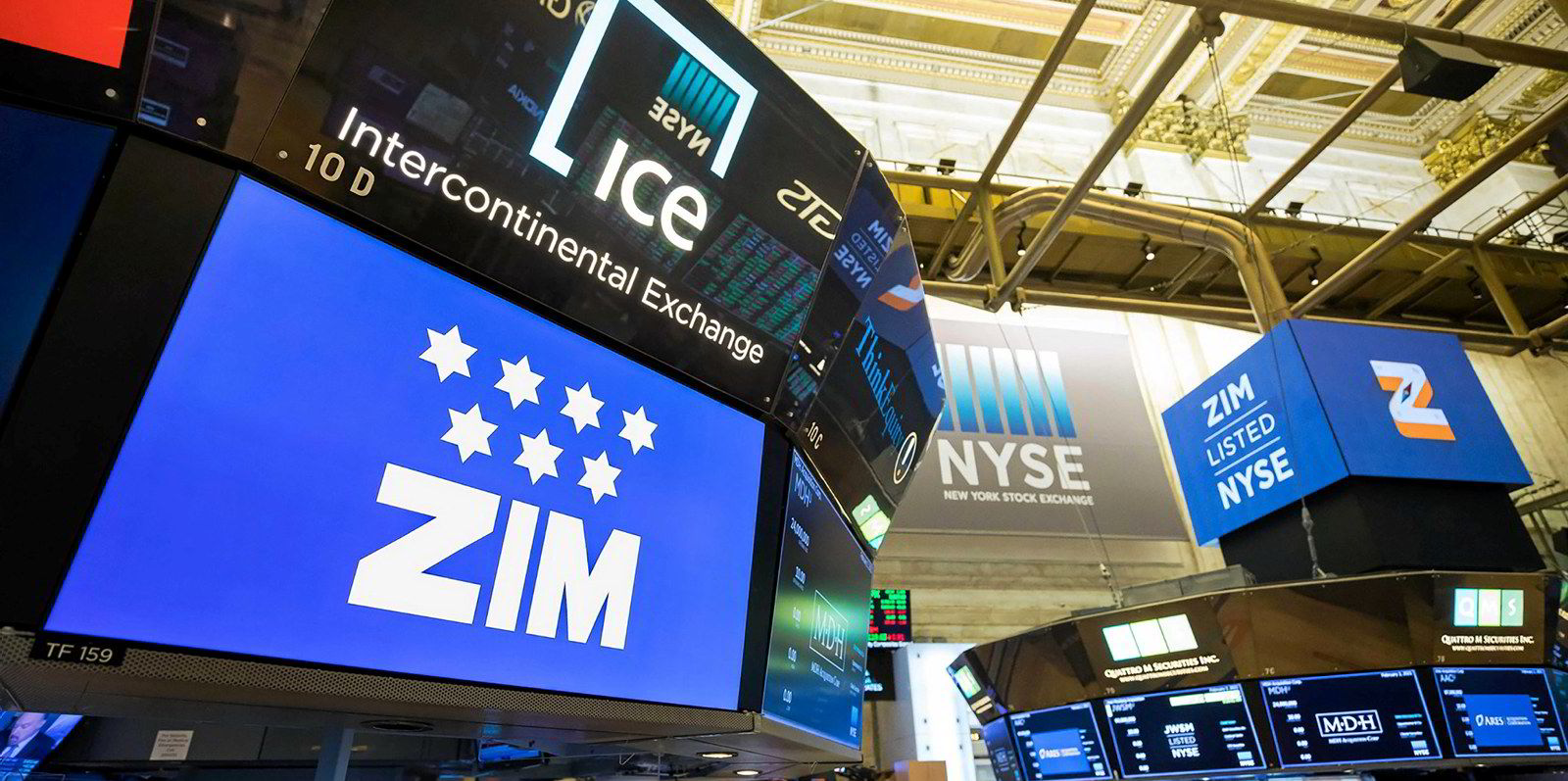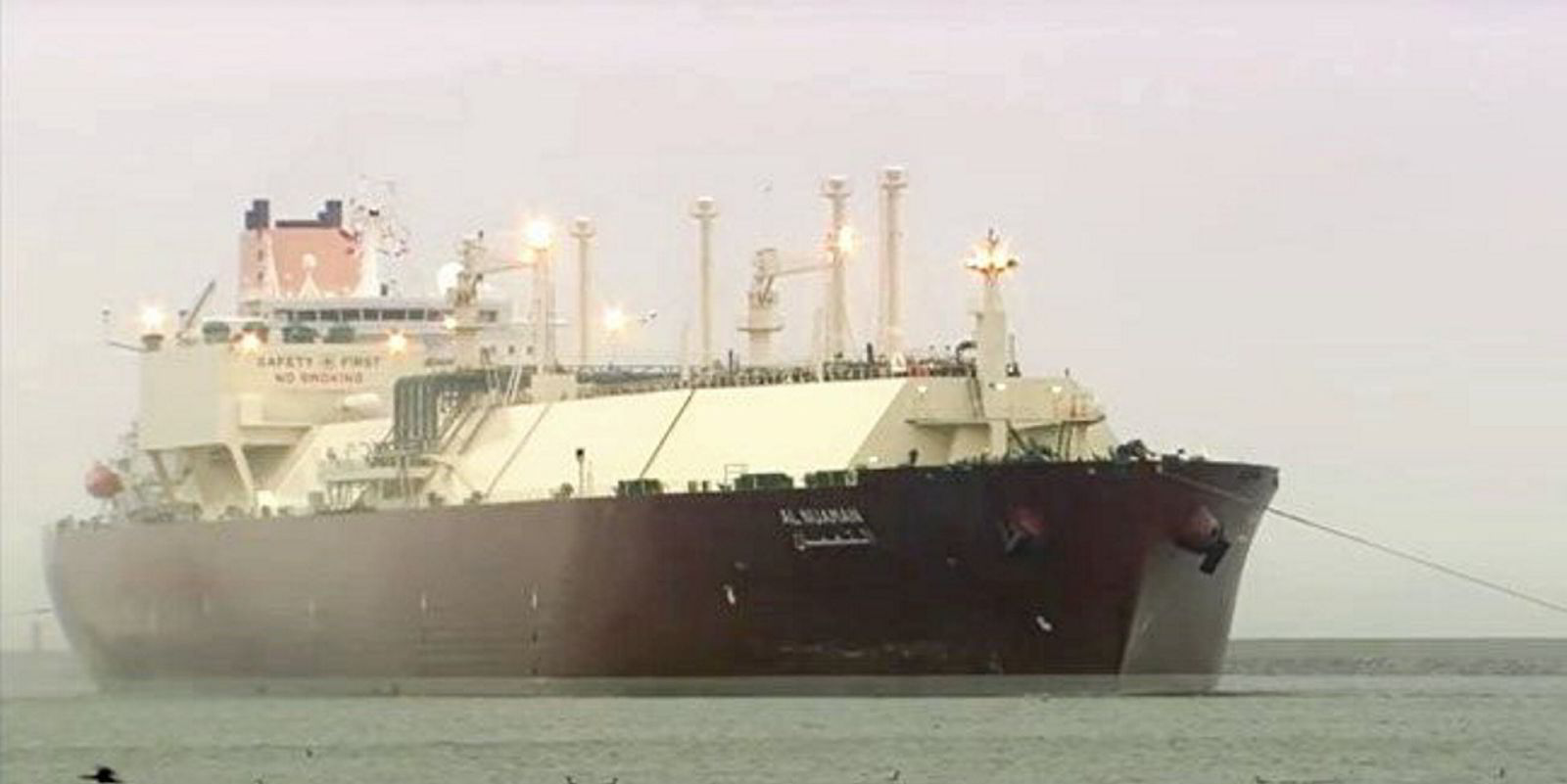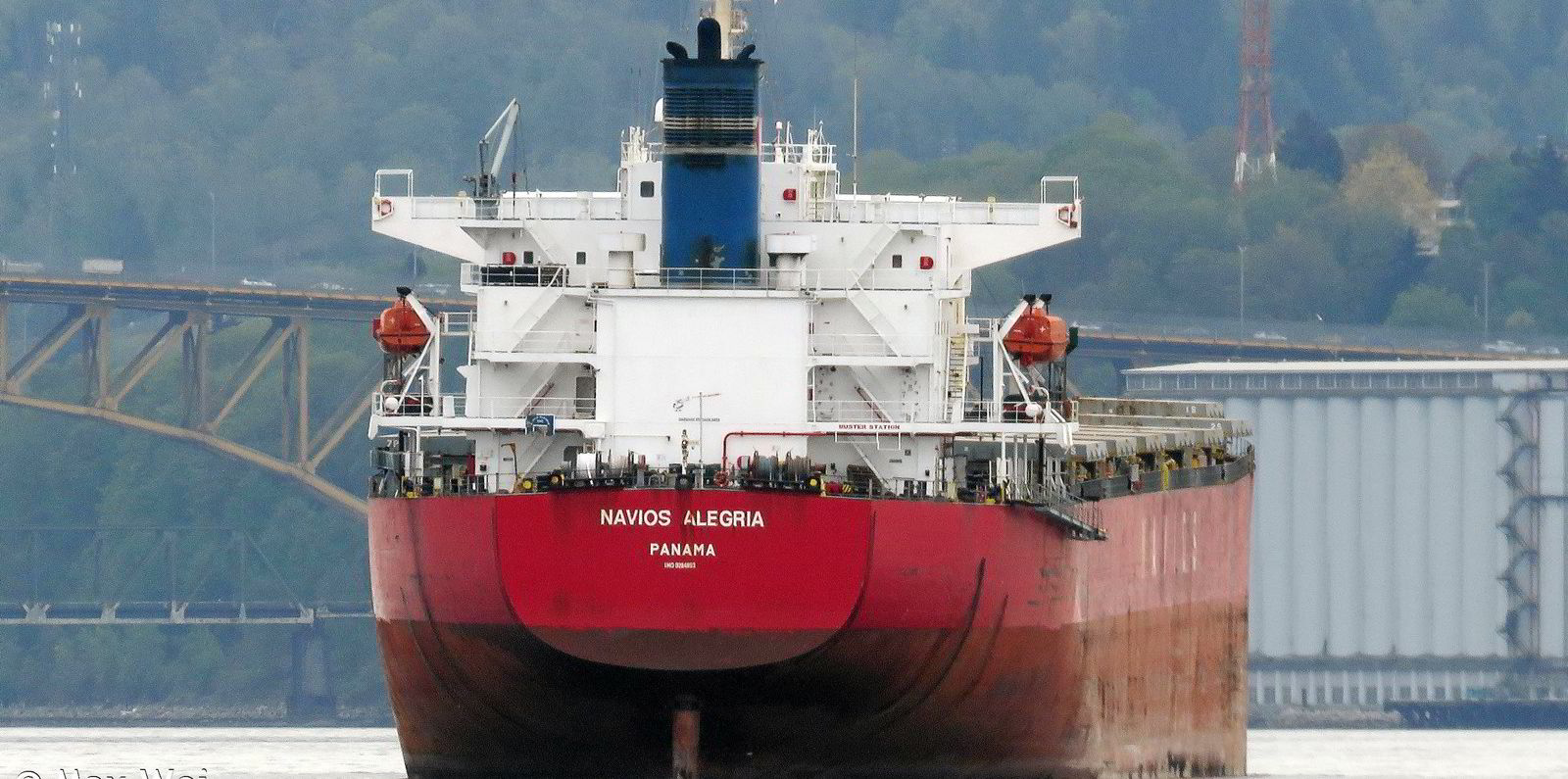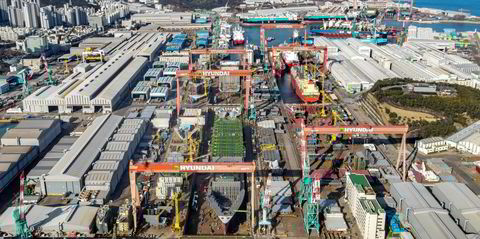Shipping stocks slipped last week as the conflict in the Red Sea entered a new and more intense phase.
While naval vessels shot down drones and missiles before the US and UK launched airstrikes on the Houthi militants responsible for the recent attacks, shares fell by an average of 2%, Clarksons Securities said on Monday.
Container shipping equities slid by 7%. Bulker and LPG carrier owners fell by 5%.
“Only tanker equities bucked the trend, ending the week on a positive note,” Clarksons analyst Frode Morkedal said.
“The heightened volatility in the market is evident, with stocks fluctuating in response to developments in the Red Sea conflict.”
He pointed out Zim as a “prime example” of the industry’s volatility. The Israeli liner operator’s shares fluctuated by 20% over the course of the week.
Shares jumped on Friday following the airstrikes, Morkedal said, hitting a weekly high of $15.02 in early trading, before sliding $13.46 and further to $13.42 in after-hours trading.
AP Moller-Maersk, the largest publicly listed container shipping player, finished 5 January at DKK 13,975 ($2,049) and its shares fell steadily to DKK 13,045 by last Friday.
Hong Kong-listed China Cosco Holdings, which owns bulkers in addition to heavylift vessels and tankers, saw its shares finish at CNY 10.01 ($1.41) on 5 January, dip throughout the next week before finishing the week on an upswing at CNY 9.49.
LPG carrier owner BW LPG’s Oslo-listed shares dropped from NOK 162 ($15.70) on 5 January to NOK 146 on 12 January — although dips in that sector saw contributions from a narrowing US Gulf-Far East price differential, which helped push down rates.
Morkedal said it is not known how long ships will be diverting around the Cape of Good Hope, which can add 12 days to a journey and $250,000 to the fuel bill, depending on speed, but does allow owners and charterers to avoid Suez Canal transit costs and rising war risk insurance premiums.
He added that the seizure of Empire Navigation’s 158,600-dwt St Nikolas (built 2011) last week by Iranian forces in the Gulf of Oman has raised uncertainty in the Strait of Hormuz.
Tankers carrying oil out of the Middle East Gulf cannot avoid the Strait of Hormuz, he said.
Morkedal suggested the likelihood that the strait becomes the next hot spot is low, but it would have a big impact on tanker and oil markets.
“The potential escalation of the conflict to the Strait of Hormuz is a matter of concern, considering that it’s a critical passage for 16m barrels of crude oil daily, according to Argus estimates,” he said.







